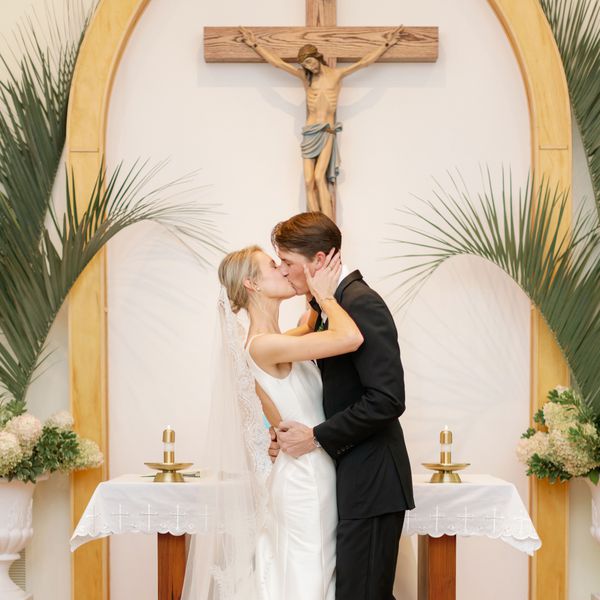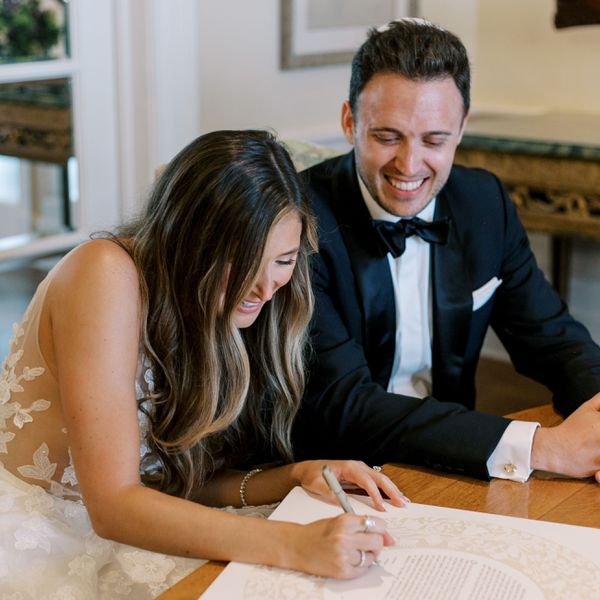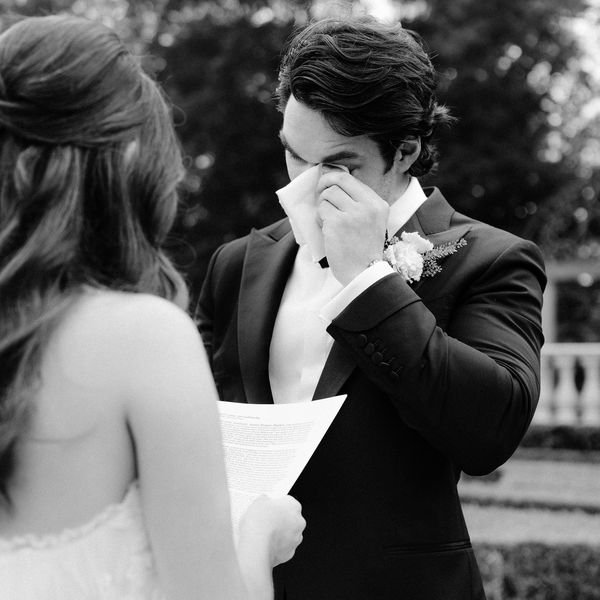:max_bytes(150000):strip_icc()/till-death-do-us-part-recirc-getty-10-30-4e776b566c88482d8007f53ac8f4ec22.jpg)
Klaus Vedfelt / Getty Images
In the weeks before your wedding, as you finalize details with your vendors, attend your last dress fitting, and break in your shoes, you may shift your attention to one crucial part of your wedding ceremony: the vow exchange. While some couples opt to write their own vows, you may decide to turn to those associated with you or your partner’s religious background. Yet amidst your research, you may not stumble upon a phrase you’re expecting to see: “till death do us part.” While these words are frequently uttered in movies, TV shows, and books, they actually don’t appear in many modern wedding ceremonies.
While some Christian wedding ceremonies do include some variation of the phrase in the vow exchange, it's not standard practice across every denomination. There's a reason for that. Unlike words that appear in the Bible, which are referenced by every Christian denomination, the first iteration of this phrase appeared in the Church of England's Book of Common Prayer in 1549, a text that isn't used by all Christian denominations.
Below, read more about the meaning of “till death do us part,” as well as some modern variations and alternatives.
What Is the Meaning of “Till Death Do Us Part”?
Historically, divorce wasn’t permitted in many religions, including the Church of England. In the eyes of the Anglican tradition, the couple would only be separated from each other if one of them died. Yet, ironically, this standard didn't apply to the movement's own founder. King Henry VIII established the Church of England in order to annul his marriage to his first wife, Catherine of Aragon, since the Roman Catholic Church wouldn’t permit him to do so. However, with the exception of Henry VIII, the Church of England remained generally opposed to divorce until the 19th century. Hence, the separation of two spouses would only be in death, giving meaning and weight to the phrase “till death do us part.”
Where Does “Till Death Do Us Part” Come From?
The phrase first appeared in the Church of England’s Book of Common Prayer in 1549. After the minister received the bride from her father or a friend, he would then prompt the groom to take his soon-to-be wife by the right hand and say the following:
“N. take thee N. to my wedded wife, to have and to hold from this day foreward, for better, for worse, for rycher, for poorer, in sickness, and in health, to love, and to cherish, till death us depart, according to goddes holy ordynaunce: And thereto I plight thee my troth.”
However, in the 1662 version of the religious text, the statement slightly shifted, reading:
“I M. take thee N. to my wedded wife, to have and to hold, from this day forward, for better for [worse], for richer for poorer, in [sickness] and in health, to love and to [cherish] till death us do part, according to God’s holy ordinance; and thereto I plight thee my troth.”
In this version of the book, the phrase reads as “till death us do part.” However, nowadays, the phrase is better understood and said as “till death do us part.”
Does “Till Death Do Us Part” Still Appear in Wedding Vows?
Protestant wedding vows still use a variation of the term. Typically, these are the Protestant vows, as they stand today:
"In the Name of God, I, ________, take you, ________, to be my (wife/husband), to have and to hold from this day forward, for better, for worse, for richer, for poorer, in sickness and in health, to love and to cherish, until we are parted by death. This is my solemn vow.”
However, various denominations of the movement may use slightly different versions of the statement. For example, in Baptist wedding vows, the couple says the following after exchanging their rings:
"With this ring, I thee wed, and all my worldly goods I thee endow. In sickness and in health, in poverty or in wealth, till death do us part."
Are There Alternatives to “Till Death Do Us Part”?
Yes. With modern ceremonies, many couples choose to adapt their vows to fit their own personal style and preferences. (You may even opt to write your own.) If you want to reflect the seriousness of the commitment, but don’t want to say “till death do us part,” consider one of the following alternative phrases:
- For all of our days
- Forever
- For all time
- For as long as we live















